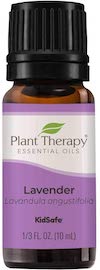Repelling Unwanted Bugs With Lavender Plants
A common homeowner issue is the removal of unwanted pesky bugs. I started to notice that in my sunroom, we were attracting a lot of insects due to our amount of healthy plant life. After reading a few books on how to naturally repel bugs from an area, I was relieved to discover there is a plant that will protect your other plants!
Is lavender effective at repelling bugs? Yes, lavender plants are a natural alternative to getting rid of pesky bugs in your home. The leaves of this purple flowering plant can be used around the edges or bottoms of an area for effective bug control. Sprinkle leaves near eaves, windows, and doors to keep bugs out.
This is a great trick that many homeowners and plant lovers alike do not know. Lavender has many great uses, but we have figured out the best ways to utilize it for keeping your home bug-free!
Where to Place Lavender In Your Home to Repel Bugs
I placed my lavender plants around the bottom of my sunroom with varying success. There are plenty of types of pests my house is prone to having due to its location on top of a hill, along with being close to wooded areas. This is not ideal when it comes to living in Colorado, where everything except for the mountain peaks has shrubs!
Keeping lavender plants around the bottom of your house to repel bugs will help protect your other plants like rosemary and mint. Placing lavender leaves inside near the corners of windowsills will also keep wasps away while protecting indoor plants.
Try putting some dried lavender in a cheesecloth along with lemon balm leaves (a very fragrant herb plant) to keep wasps away from food stored in cupboards!
Is Lavender an Insecticide?
Lavender is not an insecticide but provides enough repellency that you should use it at all entry points to get rid of pests. Although, if you are looking for something more natural than chemical bug spray, this might be just what you need.
Lavender repels bugs and other insects for a good reason. Lavender contains something known as linalool. Linalool is an alcohol that has been shown to keep pests away when used in lavender-based essential oils!
If lavender does not work, you can try placing lavender oil on cotton balls near the entrance of your home. Lavender oil sold at an organic store will be effective against mosquitoes and moths when applied directly onto your skin.
If lavender does not work, there are a few other natural ways to get rid of bugs around the house. For ants, place peppermint leaves along with door frames or under windowsills where ants have been seen entering the house. Sprinkle diatomaceous earth around entry points to keep ants away from your food.
Lavender Bug Repellent Recipe to Follow
Although using fresh lavender is a great natural deterrent to bugs, try making this recipe for increased results!
- Fill a quart jar with lavender, and cover with boiling water.
- Allow to steep for 12 hours. Strain out lavender, and fill the jar full of fresh lavender flowers.
- Cover the lavender completely with salted water (one tablespoon per pint). 4.
- Label your jar “bug repellent.”
- When you’re ready to use it, strain lavender from the salted water through a fine-mesh strainer or tea bag-type coffee filter.
Use as a spray on outdoor furniture, clotheslines, etc to deter bugs from stinging. It is best not to soak clothes in this since lavender can be harmful if absorbed through skin contact over time.
So What Makes Bugs Hate Lavender?
 Lavender essential oils contain linalool, one of the main components in lavender oil which attracts mosquitoes. This is particularly true for lavender oil from Madagascar, which contains up to 80% pure linalool.
Lavender essential oils contain linalool, one of the main components in lavender oil which attracts mosquitoes. This is particularly true for lavender oil from Madagascar, which contains up to 80% pure linalool.
Plus lavender oil is even more effective against mosquitoes than lavender essential oil. This is because it contains much more camphoraceous terpene ketones that are identical or similar to insect pheromones.
A lavender plant in a garden may seem like it’s good at repelling bugs when seen from a distance. But is lavender effective when it comes to keeping insects out of the garden?
Particularly lavender incense with its strong aroma of lavender essential oils can be used for this purpose. For some using lavender to repel mosquitoes, moths and other flying insects can also work.
However, lavender essential oil needs to be diluted before spraying with a spray bottle or fogging machine. And it must be applied during sunny days, preferably in hot weather when many bugs are active especially at noontime.
Other Natural Bug Repellant Alternatives
Additional bug repellant alternatives that are effective to use in your home include natural garlic, natural cedar oil, tea tree oil, strong smells like citronella, lavender oil, and natural vanilla extract. The natural ingredients are used to make bug repellant alternatives that can be sprayed around your home for an effective bug repellant effect.
![]()
Bug Repellants vs Bug Repellent Alternatives
As natural bug repellants offer an effective alternative compared to chemical-based bug repellants which often contain harmful chemicals such as DEET (N, N-Diethyl-meta-toluamide), natural bug repellant alternatives could prove just as effective with the added benefit of using natural ingredients.
Natural bug repellant alternatives are ideal for all-natural enthusiasts who wish to avoid products that contain chemicals. Other natural ingredients include fresh lemongrass. When used in natural bug repellant this can provide an effective natural alternative especially due to the natural citronella smell the plant carries.
Does Lavender Keep Mice Away?
Lavender has a wonderful smell which makes it popular as an air freshener or in potpourri, but lavenders uses are not limited to house cleaning chores! Many people have heard about lavender’s ability to repel mice, so many people wonder if lavender keeps mice away. But can lavender keep mice away?
Not only does lavender repel mice, but other small rodents like rats and squirrels too! Besides smelling nice, what could lavender have that would make any animal want to stay away from it? To understand lavender’s power to repel mice, we have to take a look at lavender’s properties.
Lavender is a plant that belongs to the mint family of plants. Many people know lavender as a purple flowering plant with a wonderful smell that is used for its scent and skincare benefits like lavender soap, lavender shampoo, lavender bath bombs, and more.
Along with lavender’s aromatic properties, lavender contains high levels of camphor which can help repel mice. Also, linalool, which is another compound in lavenders gives off an odor mice find offensive making them want to leave your property alone!
How to Use Lavender to Repel Mice
Lavender mice repellent products are based on lavenders oils which are diluted so they don’t harm people or mice, but powerful enough to repel them!
You can try making lavender house mousetraps that use lavender essential oil as the active ingredient in the soap solution of your mousetrap. Place some cotton balls dipped in lavender oil inside your standard spring mousetrap.
This simple lavender mice trap will keep catching mice all day long until you get rid of the pests using more traditional methods like live traps or poison baits. You can also put dried lavender around areas where mice are spotted to repel them before they get into your house.
Simply spread lavender stems around the perimeter of your house, in any hiding spaces or burrows that mice use to enter your space and lavender will keep them away!
Is Lavender Safe for House Pets?
The answer to this question is unfortunately not as simple as a yes or no. The flower, lavender does contain linalool which can be toxic for both dogs and cats if consumed in large quantities. However, the presence of such compounds are usually not an issue. This is because they’re found at too low concentration to cause problems on their own.
Problems arise only when your pet ingests poisoned food or treats from ingested items coated with dangerous levels of tampering. If you notice that your dog or cat has lavender poisoning, get them to a vet immediately. Lavender is not safe for house pets in high doses without precautions.
Does Lavender Repel Mosquitos?
The lavender plant is also known to repel mosquitos, flies, and other flying pests. This makes lavender an attractive addition to outdoor spaces where summertime bug bites are not appreciated by the family.
When placed in pots or directly in your garden lavender can keep mosquitoes away without chemicals or harmful side effects like typical bug repellents. It’s easy to grow lavender indoors as well. Simply place a potted lavender plant near your home entrance for an added layer of protection against indoor bugs like cockroaches and spiders (but don’t forget about your pets).
In Conclusion
Nothing is better than a lavender plant next to a window, because lavender has natural pest control abilities. Unfortunately, lavender will not make the bugs go away for good – you still have to get rid of them somehow!
But lavender plants do work. If you are trying to maintain a healthier environment in your home with minimal use of pesticides, consider lavender as an option around your house. Take back your home from pesky insects, and try the natural alternative for safe results!



